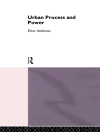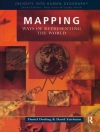Eco-city planning is a key element of urban land use planning in perspective and of ongoing debate of environmental urban sustainable development with a spatial and practical dimension. The conceptual basis of ecological planning is that we can no longer afford to be merely human-centred in approach. Instead, the interdependency of human and non-human species has forced us to appreciate the ‘rights’ and ‘intrinsic values’ of non-human species in our pursuit for a sustainable ecosystem. This volume has as approach an emphasis on environmental planning policies whereby, for example, energy saving, anti-pollution measures, use of non-car modes, construction of green buildings, safeguarding of nature and natural habitats in urban areas, and use of more renewable resources are promotional norms. Their aims and leading outcome serve to protect the Earth from adverse effects of global warming and different sources of pollution threatening the quality of life of human societies.
قائمة المحتويات
Preface.- Introductory chapter.- How cities can enter the ecological age.- Are examples of ecological cities from China, Europe and Singapore useful for developing countries? – Securing cities and their urbanities through ecoinfrastructures, feedback loop urbanisms and networks of zerocarbon settlement.- Cities and eco-tourism for the 21th century.- Down with ECO -towns! Up with ECO-communities or is there a need for model eco-towns?- Eco-cities in China: pearls in the sea of degrading urban environments?- Green urbanism: rejuvenating of mature housing estates in Singapore.- The challenges of sustainable urban development: the case of Iskandar, Malaysia.- Presentation of ecological footprint information: a re-examination.- Towards sustainable architecture: the transformation of the built environment in Istanbul, Turkey.- Urban air quality management: detecting and improving indoor ambient air quality.- Index.












